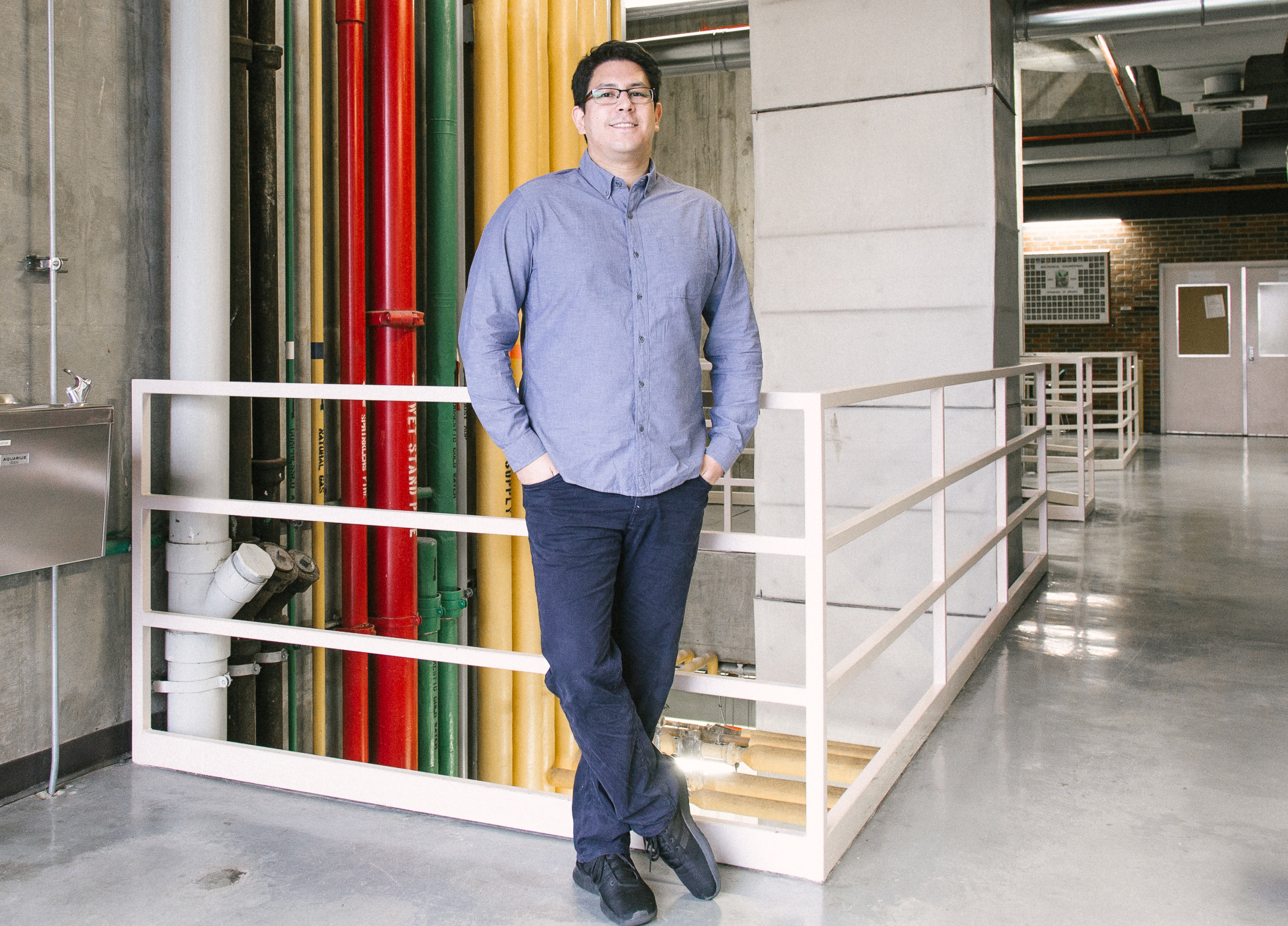
Graduating this spring with a PhD in mechanical engineering, Nicolas Olmedo and his business partners in Copperstone Technologies are at the leading edge of robotic vehicles.
(Edmonton) Who would you send to inspect a tailings pond? To survey an unstable toxic environment? Or even mine an asteroid in space?
Nicolas Olmedo would send a robot. With the design and build of two environmental monitoring robots under his belt and two more in production, no task is seen as impossible to Olmedo, who's graduating this week with a PhD in mechanical engineering and a growing startup to tend to.
With his two former classmates turned business partners, Olmedo and his friends tapped into their shared passion for space and robotics to design an award-winning capstone project. They then launched their own robotics startup, Copperstone Technologies, in 2015. Specializing in autonomous amphibious robots for environmental monitoring, Copperstone's robots are able to work in harsh environments considered too dangerous for human workers.
Through the use of its robotics technologies, Copperstone offers companies the means to autonomously monitor areas affected by mining operations tailings in a safe, cost-effective, and efficient manner.
The robotic vehicles he and his colleagues at Copperstone produce are able to perform tasks such as collecting information about the terrain they're travelling on. When it comes to monitoring land being reclaimed from mine tailings, for example, Copperstone's vehicles can go where humans can't.
"My research projects focus on understanding the interaction between machines or wheels and soil and in general deformable soils. This allows you to drive a robot on top of environment and just by driving on it, you're able to collect some measurements and understand a lot more about that terrain," he said.
"Right now there are challenges in collecting measurements because you would need to send out person to collect measurements on terrains that may be dangerous. So the idea is that you can send out the robot to do the measurements so you can have a better understanding of what's happening."
He says his graduate degree has provided him with a depth of technical skills far surpassing his undergraduate experience.
"Working towards your PhD, you gain many more years of technical training," he said. "And then on the "soft skills" you get exposed to a lot more working on teams, working towards much higher objectives with all types of different people.
"I work a lot with geotechnical engineers, whose expertise is completely different from mechanical, and I also work with business people, salespeople, and communications people in the company as well. It's completely different," he said.
"For me, the value of grad studies is to get expertise and experience in a specific topic-to become an expert in that area so that you can be at the forefront of not only the science, but the technology implementations in your industry; you can innovate and improve it and extend it further."